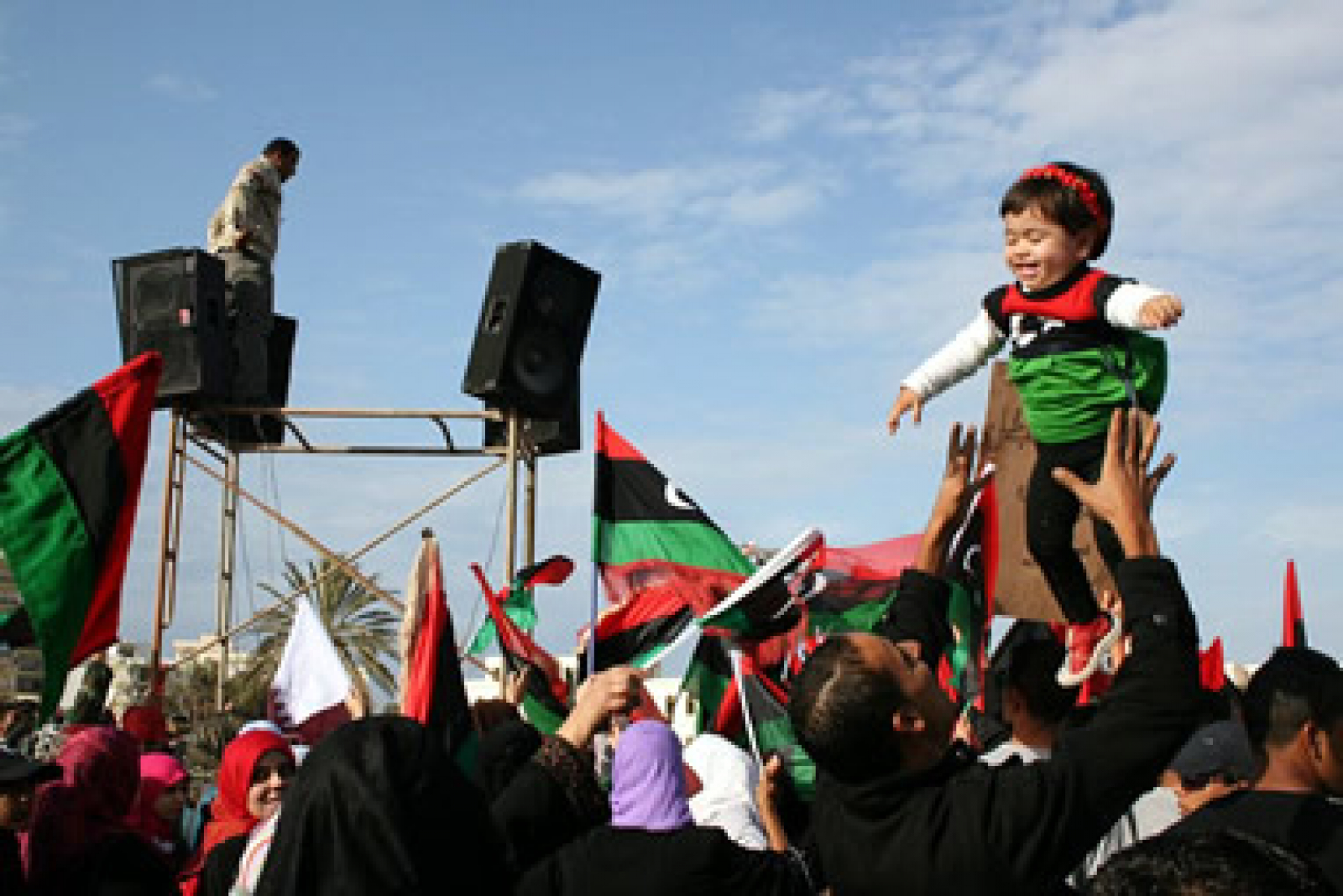
SHARE
Most Libyans are eager to exercise their newfound political freedoms and participate in shaping their country’s future, but they feel disadvantaged by their lack of exposure to democratic practices and have concerns about security and their economy, according to new public opinion research undertaken by NDI.
The qualitative research project sampled citizens’ opinions through 16 focus groups in six cities in eastern, western and southern Libya from Nov. 12 to 28.
Following in the footsteps of neighboring Tunisia and Egypt, Libyans took to the streets in February calling for an end to Muammar Gaddafi’s 42-year regime and a transition to democracy. After a 10-month conflict, Libya’s transitional leaders declared the country liberated on Oct. 23 and initiated a political transition that calls for developing an electoral framework, holding elections for a constituent assembly and drafting a new constitution.
NDI’s research was designed to capture citizen sentiments about the political landscape and expectations for the future. Here are some key findings:
- Although Libyans are optimistic, have high expectations for the future and believe the country is headed in the right direction, the initial euphoria over the revolution is becoming eclipsed by growing everyday concerns including security, the economy and persistent corruption.
- Libyans have positive views about democracy, which they link closely to freedom of speech and participation in public debate. But while Libyans are eager to engage in civic and political life and elections, awareness of the election – expected next June – is low.
- Libyans overwhelmingly agree that moderate Islamic principles should influence governance, but opinions vary on exactly what role religion should play in public life. There is consensus on the need to avoid extremism. Years of Gaddafi propaganda have tarnished the public image of democracy and political parties, yet Libyans are enthusiastic about learning about basic democratic principles and the transition roadmap. Libyans are also interested in political parties and eager to learn about their platforms.
- While Libyans largely appreciate the role the National Transitional Council (NTC) played in managing the country during the revolutionary crisis, the council’s lack of transparency and failure to communicate information on its activities or the transition is creating a disconnect between transitional government and the public. It is clear that greater NTC attention to open communication and transparent decision-making are critical prerequisites for Libyans to believe that the transition is progressing.
- Participants are broadly supportive of women playing roles in public life, but opinions vary about what type of engagement is best-suited to women. Women themselves are eagerly seeking opportunities to contribute to the transition and take part in politics.
Given the growing gap between transitional leaders and the public, the findings of this study are being used to inform Libyan decision-makers—in political parties, civil society organizations and the transitional government—about citizens’ attitudes and opinions to help them understand and respond to the needs and concerns of Libyans during the transition.
Production of this report was made possible through funding from the State Department’s Middle East Partnership Initiative (MEPI).
Read more:
- Read the full focus group report (English and Arabic)»
- Notes from Benghazi: Political parties look to the future»
- Young Moroccans express disappointment with reforms, political parties»
- Tunisians want politicians to address jobs, security as first democratic elections approach»
Published December 16, 2011


